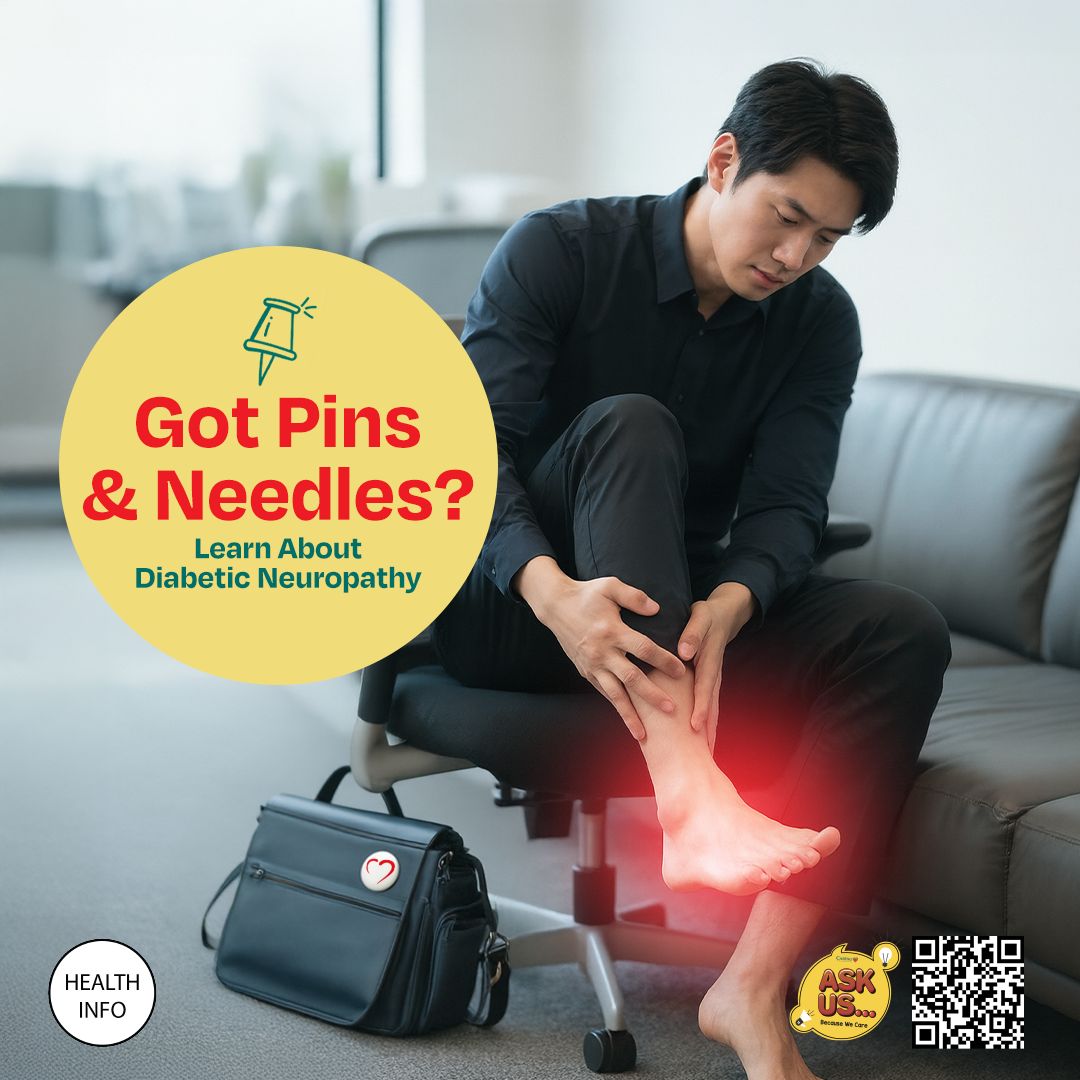- Home
- Health Center
- Health Info
- It’s Time to Talk About Menopause – Hot Flashes
Menopause
It’s Time to Talk About Menopause – Hot Flashes

In the last article, we have shared the basics of menopause, including the definition, the symptoms and some of the treatment options such as hormonal therapy and non-hormonal options. It is important to remember that when used appropriately, hormone therapy can be a safe and effective option for many women. However, there are some women who are not appropriate candidates for hormone therapy, such as those who have been recently treated for breast cancer.
In this article, we will discuss further on the most common menopausal symptoms – hot flashes and some of the non-hormonal treatment options for women experiencing hot flashes.
What are hot flashes?
Being one of the most common symptoms, the study estimated around 85% of menopausal women would experience hot flashes.
Hot flashes are :
- A warm sensation usually begins in the head and face, spreads down to the neck and to other parts of the body
- Lasts about three to six minutes
- Associated with a sudden increase in heart rate, rise in skin temperature, sweating
- Can occur once a month, once a week or several times an hour
Knowing the triggers of hot flashes
Hot flashes may be precipitated by hot weather, smoking, caffeine, spicy foods, alcohol, tight clothing, heat and stress.
Identify and avoid your hot flash “triggers.” Some women notice hot flashes when they eat a lot of sugar. Exercising in warm temperatures might make hot flashes worse.
Diet
- Avoiding caffeine, spicy foods, and alcohol can help lessen both the number and severity of hot flashes.
- Many women try to incorporate more plant estrogens into their diet. Plant estrogens, such as isoflavones, are thought to have weak estrogen-like effects that may reduce hot flashes. They may work in the body like a weak form of estrogen.
Examples of plant estrogens include soybeans, chickpeas, lentils, flax seed, grains, beans, fruits, red clover and vegetables.
Lifestyle changes
- Reducing the temperature in a room, dressing in layers, and the use of a fan while asleep can be effective ways to help deal with troublesome hot flashes.
- Women who are overweight tend to have more bothersome hot flashes, therefore weight loss can be helpful.
- Quitting smoking has dual importance during menopause. First, smoking contributes to the increased cardiovascular risks of being postmenopausal. Second, smokers tend to experience more hot flashes.
In the next article, we will further discuss some of the supplementation options which could possibly improve your menopausal symptoms.
References:
- Deborah Garlick. Menopause in the workplace: introducing good practice. Society for Endocrinology. 2019(131).
- Menopause. MyHealth Kementerian Kesihatan Malaysia. [Accessed on 5 May 2020]. Available from http://www.myhealth.gov.my/en/menopause/
- Clinical Practice Guidelines on Hormone Therapy during Menopause in Malaysian Women. Academy of Medicine of Malaysia. July 2010.
Latest Health Info
Brave the Cold: Winter Travel Needs
Winter travel has its kind of magic — snow-covered landscapes, cozy lodges, hot drinks, and festive markets. But traveling in ...
Beat the Heat When Travelling
Whether you’re on a scenic beach vacation or exploring a busy city, hot weather can quickly wear you out and ...
Got Pins & Needles? Learning about Diabetic Neuropathy
Diabetic neuropathy is a common yet serious complication of diabetes, estimated to affect up to 50% of people with the ...



